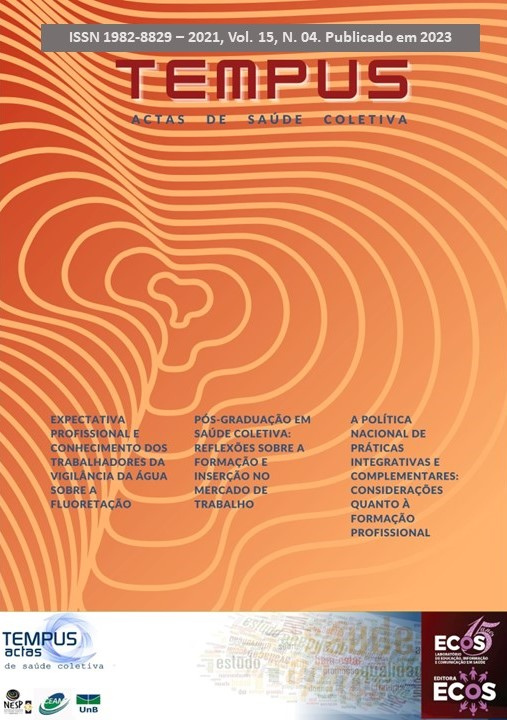Abstract
The article discusses professional qualification linked to the National Policy for Integrative and Complementary Practices (PNPIC) of the Brazilian Health System, through a literature review and analysis of courses offered in the Virtual Learning Environment (AVASUS). It contextualizes the implementation of integrative practices in the Brazilian Health System on the national and international scene. Significant differences are pointed out, in terms of qualification and professionals authorized to practice them, between Ordinance No. 971/2006, which instituted the PNPIC, and No. 849/2017 and 702/2018, which include new practices that integrate this policy. The offer of integrative practices courses through AVASUS is understood as necessary, but insufficient for the qualification of professionals. It is concluded that, despite recent advances in the debate and considering the way in which the framework of practices was expanded by the latest ordinances, it is possible to identify important challenges for the consolidation of the PNPIC, among which professional qualification stands out. The defense of professional qualification and standardization of the PICS is considered as a struggle for social recognition of non-hegemonic work practices and as a way to guarantee the safe realization of such practices.
Key words: Health policy, Public politics, Complementary therapies, Traditional medicine, Human Resources Training in Health

This work is licensed under a Creative Commons Attribution 4.0 International License.
Copyright (c) 2023 Tempus – Actas de Saúde Coletiva
